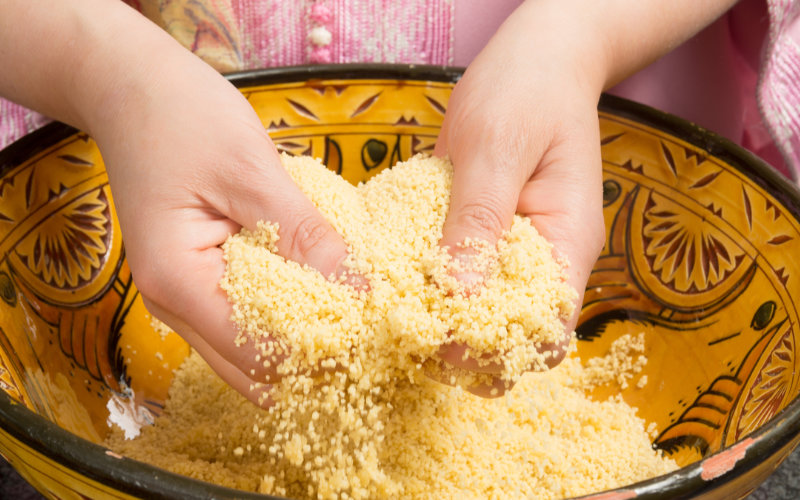Couscous and pasta: the salty bill for Moroccans

The drop in durum wheat production in Canada, currently the world’s main supplier facing climate change, has led to a rise in the price of this raw material in Morocco, where it is used to make couscous and semolina.
In a press release, Abdul Qadir Al-Alawi, president of the National Federation of Moroccan Mills, says that the price of durum wheat (used to extract semolina flour, which is used to make pasta and couscous) has risen sharply in recent months. Thus, world markets are experiencing a sharp increase in durum wheat prices, which are currently around 600 dirhams (54.8 euros) while the traditional wheat market is very stable, with the price of the quintal reaching a maximum of 300 dirhams (27.4 euros). The origin of this increase is the considerable drop in durum wheat production in Canada - especially in the provinces of Alberta and Saskatchewan, which account for 78% of the country’s production - the main world supplier.
This drop in production has also driven up durum wheat prices in Morocco, a country that cannot do without this raw material produced in Canada. It is not possible to replace Canadian durum wheat imports with other suppliers, due to the strong dependence of Moroccan consumers on this product, explains Abdul Qadir Al-Alawi. In Morocco, Canadian durum wheat is processed into semolina and couscous pasta. The latter are then exported to several European countries, where they are highly prized. Last year, Morocco had already suffered from record prices for traditional wheat following Russia’s invasion of Ukraine, which disrupted the global wheat trade. Another problem facing the kingdom is that the national durum wheat stocks only last two to three months at most.
Hit in 2022 by one of the worst droughts in decades, cereal production in Morocco fell by 60%, from 10.4 million tons in 2021 to only 3.3 million tons. This year, Morocco should produce around 3 million tons of soft wheat, 1 million tons of durum wheat and 1.3 million tons of barley. Pending this harvest, Morocco should import 2.5 million tons of soft wheat this September, but it will need an additional 2.5 million tons by the end of June 2024, said Omar Yacoubi, president of the Moroccan Federation of Cereal Traders (FNCL), to Reuters.
Related Articles
-

Morocco’s Meat Market Stabilizes: Prices Hold Steady Despite Global Pressures
17 September 2025
-

Casablanca Financial Scandal: Massive Money Laundering Scheme Uncovered
16 September 2025
-

State Vehicle Spending Surges: Fuel Costs Devour Budget
16 September 2025
-

Moroccan Gems Outshine Middle East: Fez and Marrakech Named Top 2025 Destinations
16 September 2025
-

Marrakech: Churchill’s Secret Oasis Beckons Modern Travelers
15 September 2025